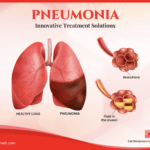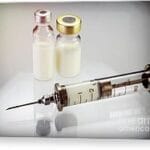Aspirin, also known as acetylsalicylic acid, is a widely used medication that belongs to the class of drugs called nonsteroidal anti-inflammatory drugs (NSAIDs). it is also a widely used medication with a long history of therapeutic use. It has been used for many years to relieve pain, reduce inflammation, and lower fever. Aspirin is available over-the-counter in colorful forms, including tablets, capsules, and maquillages.
Brands available:
- Ascard.
- Dispirin
- Aspro.
Aspirin Poisoning (Salicylism):
Aspirin poisoning, also known as salicylism, can occur when an individual takes an excessive dose of aspirin. Symptoms of aspirin poisoning may include ringing in the ears (tinnitus), dizziness, confusion, rapid breathing, sweating, and nausea. Severe cases can lead to more serious complications, such as seizures, coma, or even death.
If you suspect aspirin poisoning, it is crucial to seek immediate medical attention or contact a poison control center.

Dosage and Administration:
The appropriate dosage of aspirin depends on the specific condition being treated. Low-dose aspirin for cardiovascular protection is typically around 81 mg to 325 mg daily, while higher doses may be used for pain relief or anti-inflammatory purposes.
Taking an excessive dose of aspirin can lead to aspirin poisoning, as mentioned earlier. Overdosing on aspirin can be life-threatening and requires immediate medical attention. Symptoms of aspirin overdose may include confusion, rapid breathing, vomiting, dehydration, and seizures.
It is important to follow the recommended dosage and consult a healthcare professional if you have any concerns about aspirin use.
Please note that this information is not exhaustive, and it is always advisable to consult a healthcare professional or refer to the medication’s package insert for specific guidance and recommendations regarding aspirin use.
Pharmacokinetics:
After oral administration, aspirin is fleetly absorbed from the gastrointestinal tract. It is then converted into salicylic acid, the active form of the drug, in the body. Salicylic acid is primarily metabolized in the liver and excreted in the urine.
The elimination half-life of aspirin is relatively short, ranging from 2 to 4 hours. However, the effects of aspirin on platelet function can last for several days due to irreversible inhibition of platelet aggregation.
Pharmacodynamics:
Aspirin exerts its pharmacological effects by inhibiting the production of prostaglandins, which are substances involved in pain, inflammation, and fever. By inhibiting prostaglandin synthesis, aspirin reduces pain, inflammation, and fever.
Aspirin’s antiplatelet effects are due to its ability to irreversibly inhibit the enzyme cyclooxygenase (COX), which is involved in the production of thromboxane A2, a substance that promotes platelet aggregation. This antiplatelet effect helps prevent the formation of blood clots.
Uses of Aspirin :
- Pain Relief: Aspirin is an effective analgesic (pain reliever) and antipyretic (fever reducer). It works by inhibiting the product of prostaglandins, which are chemicals in the body that promote inflammation, pain, and fever.
- Anti-inflammatory Properties: In addition to its analgesic effects, aspirin also has anti-inflammatory properties. It can be used to alleviate symptoms associated with various inflammatory conditions, such as arthritis.
- Antiplatelet Effect: Aspirin is well-known for its antiplatelet effect. It inhibits the aggregation of platelets, which are blood cells that play a crucial role in blood clotting. This property makes aspirin a common medication for preventing heart attacks and strokes in individuals at high risk.
- Cardiovascular Health: Low-dose aspirin is often prescribed to individuals with a history of heart disease or those at high risk for heart attacks. It helps to prevent the formation of blood clots in the arteries, reducing the risk of heart attacks and strokes.
Side Effects of Aspirin :
While aspirin is generally safe when used as directed, it can cause certain side effects. Common disadvantage include stomach upset, heartburn, and nausea. In some cases, aspirin can irritate the stomach lining and lead to gastrointestinal bleeding or ulcers. Prolonged use or high doses of aspirin may increase the risk of these complications.
- Interactions and Precautions: Aspirin can interact with other medications, and it may not be suitable for everyone. It’s important to consult a healthcare professional before starting any new medication regimen, especially if there are underlying health conditions or other medications being taken.
2. Allergic Reactions: Some individuals may be allergic to aspirin or may develop hypersensitivity reactions. Symptoms of an antipathetic response can include rash, itching, swelling, severe dizziness, or difficulty breathing.. If any of these symptoms occur, medical attention should be sought immediately
3. Gastrointestinal Effects: Prolonged and high-dose use of aspirin can lead to gastrointestinal side effects, including irritation of the stomach lining, ulcers, and bleeding. This risk is higher in individuals with a history of gastrointestinal issues.
4. Reye’s Syndrome: Aspirin should not be given to children and teenagers with viral infections, particularly influenza or chickenpox, due to the risk of developing Reye’s syndrome, a rare but serious condition that affects the liver and brain.
Rare but serious side effects of aspirin include allergic reactions, such as hives, difficulty breathing, and swelling of the face, lips, tongue, or throat. Aspirin can also increase the risk of bleeding, especially in individuals with bleeding disorders or those taking blood-thinning medications.

Drug-Drug Interactions:
Aspirin can interact with other specifics, potentially altering their effectiveness or adding the threat of side goods. It’s important to inform your healthcare provider about all the specifics you’re taking, including tradition medicines, over-the-counter specifics, and herbal supplements.
Some common medicine relations with aspirin include
- Anticoagulants (blood thinners): Aspirin can increase the risk of bleeding when taken with anticoagulant medications like warfarin or heparin.
- Nonsteroidal anti-inflammatory drugs (NSAIDs): Taking aspirin with other NSAIDs, such as ibuprofen or naproxen, can increase the risk of stomach bleeding and ulcers.
- Corticosteroids: Concurrent use of aspirin and corticosteroids may increase the risk of gastrointestinal bleeding.
Contraindications of Aspirin :
There are certain situations in which aspirin should be avoided or used with caution. These include:
- mislike or acuity to aspirin or other NSAIDs.
- Active stomach ulcers or bleeding disorders.
- Severe liver or kidney disease.
- Pregnancy, especially during the third trimester.
- Children and teenagers recovering from viral infections( due to the threat of Reye’s pattern).
Conclusion:
In conclusion, aspirin is a versatile medication with a range of therapeutic uses, including pain relief, anti-inflammatory effects, and as an antiplatelet agent. However, it is not without risks and potential side effects, particularly with prolonged or high-dose use. Therefore, it’s crucial to use aspirin under the guidance of a healthcare professional who can weigh the benefits against the potential risks for each individual patient.

Dr. Hamza is a medical content reviewer with over 12 years of experience in healthcare research and patient education. He specializes in evidence-based health information, medications, and chronic disease management. His reviews are based on trusted medical sources and current clinical guidelines to ensure accuracy, transparency, and reliability. All content reviewed by Dr. Hamza is intended for educational purposes only and should not be considered a substitute for professional medical advice











Thank you for this piece, it has been totally helpful to me! Much easier to understand than other bloggers out there.
This is a excellent blog, would you be involved in doing an interview about just how you designed it? If so e-mail me!
Glad to be one of the visitors on this awe inspiring web site : D.
Thank you for writing this article. I appreciate the subject too.
Thank you for being of assistance to me. I really loved this article.
Can you write more about it? Your articles are always helpful to me. Thank you!
Sustain the excellent work and producing in the group!
Thank you for sharing this article with me. It helped me a lot and I love it.
Sustain the excellent work and producing in the group!